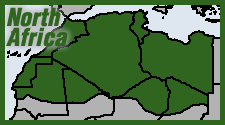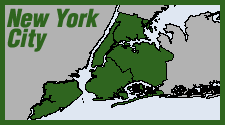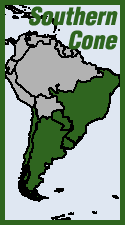 Security forces of the Sahrawi Arab Democratic Republic on Aug. 19 announced the seizure of 300 kilograms of cannabis in operations along the security wall built by the Moroccan military, which divides Morocco-occupied Western Sahara on the western side from the interior desert controlled by the Sahrawi rebels. In a statement to the press, the Saharawi National Gendarmerie Directorate said their patrols "have arrested three groups [that] were smuggling drugs from Morocco to northern Mali via the Saharawi liberated territory." The statement said five four-wheel-drive vehicles had been seized as well. "These groups are now at the hand of Saharawi justice," added the statement.
Security forces of the Sahrawi Arab Democratic Republic on Aug. 19 announced the seizure of 300 kilograms of cannabis in operations along the security wall built by the Moroccan military, which divides Morocco-occupied Western Sahara on the western side from the interior desert controlled by the Sahrawi rebels. In a statement to the press, the Saharawi National Gendarmerie Directorate said their patrols "have arrested three groups [that] were smuggling drugs from Morocco to northern Mali via the Saharawi liberated territory." The statement said five four-wheel-drive vehicles had been seized as well. "These groups are now at the hand of Saharawi justice," added the statement.

 Cannabis is a $1.65 billion industry in New York City, according to a report released Aug. 14 by comptroller and mayoral hopeful
Cannabis is a $1.65 billion industry in New York City, according to a report released Aug. 14 by comptroller and mayoral hopeful  US Attorney General
US Attorney General  A judge for the
A judge for the  Mexico's most notorious kingpin,
Mexico's most notorious kingpin,  Reuters reports that it has reviewed documents revealing the existence of a
Reuters reports that it has reviewed documents revealing the existence of a  Gov. Pat Quinn signed HB1 into law Aug. 1, making Illinois the 20th state to legalize medical marijuana. Nearly 40% of people in the US now live in states that have adopted such laws. The Illinois Compassionate Use of Medical Cannabis Pilot Program Act creates a framework to protect physicians and certain qualified medical marijuana patients from arrest and prosecution. HB1 was passed 35-21 by the Illinois House in April, and 61-57 by the Senate in May. HB1, which is scheduled to sunset in four years, was called one of the most restrictive laws in the country by its Senate sponsor Bill Haine (D-Alton). The new law is set to take effect on January 1, 2014.
Gov. Pat Quinn signed HB1 into law Aug. 1, making Illinois the 20th state to legalize medical marijuana. Nearly 40% of people in the US now live in states that have adopted such laws. The Illinois Compassionate Use of Medical Cannabis Pilot Program Act creates a framework to protect physicians and certain qualified medical marijuana patients from arrest and prosecution. HB1 was passed 35-21 by the Illinois House in April, and 61-57 by the Senate in May. HB1, which is scheduled to sunset in four years, was called one of the most restrictive laws in the country by its Senate sponsor Bill Haine (D-Alton). The new law is set to take effect on January 1, 2014. Uruguay’s lower house July 31 approved a bill to legalize cannabis, by a vote of 50 to 46. The bill now goes to the Senate, where lawmakers have assured President José Mujica they have a majority to approve it. Mujica's administration introduced the bill, and his signature is not in doubt. Laura Blanco, president of Uruguay's
Uruguay’s lower house July 31 approved a bill to legalize cannabis, by a vote of 50 to 46. The bill now goes to the Senate, where lawmakers have assured President José Mujica they have a majority to approve it. Mujica's administration introduced the bill, and his signature is not in doubt. Laura Blanco, president of Uruguay's 






Recent comments
2 weeks 19 hours ago
2 weeks 1 day ago
5 weeks 1 day ago
6 weeks 1 day ago
10 weeks 1 day ago
13 weeks 6 days ago
18 weeks 27 min ago
18 weeks 5 days ago
28 weeks 5 days ago
32 weeks 5 days ago